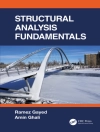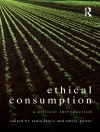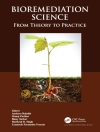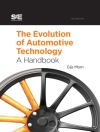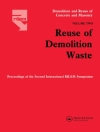This book comprises the proceedings of the 26th International Conference on Hydraulics, Water Resources and Coastal Engineering (HYDRO 2021) focusing on broad spectrum of emerging opportunities and challenges in the field of coastal, harbor and ocean engineering. It covers a range of topics, including, but not limited to, coastal disasters including tsunamis, cyclones and storm surges, sea level rise, coastal structures and oceanography, wave-structure interaction, etc. Presenting recent advances in the form of illustrations, tables, and text, it offers readers insights for their own research. In addition, the book addresses fundamental concepts and studies in the field of coastal, harbor and ocean engineering, making it a valuable resource for both beginners and researchers wanting to further their understanding of hydraulics, water resources and coastal engineering.
Spis treści
Experimental Studies of Wave Runup and Transmission through Submerged Rigid and Flexible Vegetation.- Wave Flume Studies for the Restoration of Existing Breakwater at Bhagwati Bunder Port, Ratnagiri, Maharashtra.- A Review on Directional Focusing Waves: Generation Methods towards 3D Idealization of Rogue or Extreme Waves in Laboratory.- Physical Model Study on the Soft Option of Coastal Protection Works by Vegetation Meadow – A Review.- Harbour Tranquility and Prediction of Shoreline Evolution – A Case Study.- Rejuvenation of Fishing Harbour Heavily Affected by Impact of High Waves and Sedimentation using Numerical Methods.- A Numerical Approach for the Efficiency of Submerged Breakwater to Reduce Wave Impact on an Eroding Beach Adjacent to Estuary.- Future Sea Level Rise at Indian Ports using a Combined Numerical and Data-driven Approach.- Impact of Wave Dynamics on Shoreline Changes due to Proposed Reclamation by Numerical Models in Tapi Estuary for M/S EBTL, Hazira.- River-bay Modelfor Simulating the Compound Effect of River Flow and Storm Surges.- Evolving Fishing Harbour Layout using Mathematical Models.
O autorze
P. V. Timbadiya is an Associate Professor in the Water Resources Engineering section, Department of Civil Engineering, Sardar Vallabhbhai National Institute of Technology (SVNIT), Surat, India. He secured his doctoral degree and post-graduation in Water Resources Engineering from SVNIT Surat in 2012 and 2004, respectively. He did his under graduation in Civil Engineering from SVNIT. He has guided two doctoral thesis and 29 master’s dissertations. He has more than 110 research papers to his credit, including 25 articles in peer-reviewed journals. He served as Dean (Alumni and Resources Generation), and currently serving as Sectional Head, Water Resources Engineering Section at SVNIT. He played an instrumental role in setting up infrastructure facilities in the Centre of Excellence on ‘Water Resources and Flood Management’ such as the Experimental Hydraulics Lab, Computational Hydraulics Lab, Water Circulation System, and others. He is appointed as ‘National Consultant’ for Kalpsar Project by Narmada, Water Resources, Water Supply and Kalpsar Department of Government of Gujarat, India. He received ‘Prof. R. J. Garde Research Award’ for the year 2020 by the Indian Society for Hydraulics. He has awarded DST-SERB Core Research Grant for the project on ‘Local Scouring around tandem and staggered bridge piers on Non-uniform mobile bed’ in 2021. He is active in various professional bodies and organized numerous conferences, workshops, and short-term training programmes in his academic career.
M C Deo currently works as Emeritus Fellow at Indian Institute of Technology (IIT) Bombay. He has been in the faculty of IIT Bombay since 1983. His main area of research interest is coastal and ocean engineering followed by studies in water resources and hydraulic engineering. Through a large number of application-oriented research, Prof. Deo demonstrated the power of various artificial intelligence tools to solve engineering problems related to hydrology and coastal engineering. Examples of such works include, enhancing accuracy levels of various design parameters and making real time prediction of river flows as well as that of waves, wind, currents and sediment transport. Additionally, region-specific impact of climate change on waves, wind, wind power, sediment transport and shoreline changes has also been evaluated by him for various locations along the Indian coastline.
Vijay P. Singh is a University Distinguished Professor, a Regents Professor, and Caroline and William N. Lehrer Distinguished Chair in Water Engineering at Texas A&M University, USA. He received his B.S., M.S., Ph.D., and D.Sc. in engineering. He is a registered professional engineer, a registered professional hydrologist, and an Honorary Diplomate of ASCE-AAWRE. He is a Distinguished Member of ASCE, a Distinguished Fellow of AGGS, an Honorary Member of AWRA, and a Fellow of EWRI-ASCE, IAH, ISAE, IWRS, and IASWC. He has published extensively in the areas of hydrology, irrigation engineering, hydraulics, groundwater, water quality, and water resources (more than 1320 journal articles, 31 textbooks, 75 edited reference books, 110 book chapters, and 315 conference papers). He has received over 95 national and international awards, including three honorary doctorates. He is a member of 11 international science/engineering academies. He has served as President of the American Institute of Hydrology (AIH), Chair of the Watershed Council of the American Society of Civil Engineers and is currently President of the American Academy of Water Resources Engineers. He has served/serves as Editor-in-Chief of 3 journals and two book series and serves on editorial boards of more than 25 journals and three book series. His Google Scholar citations include 64073, h-index: 115, and I10-index: 903.


